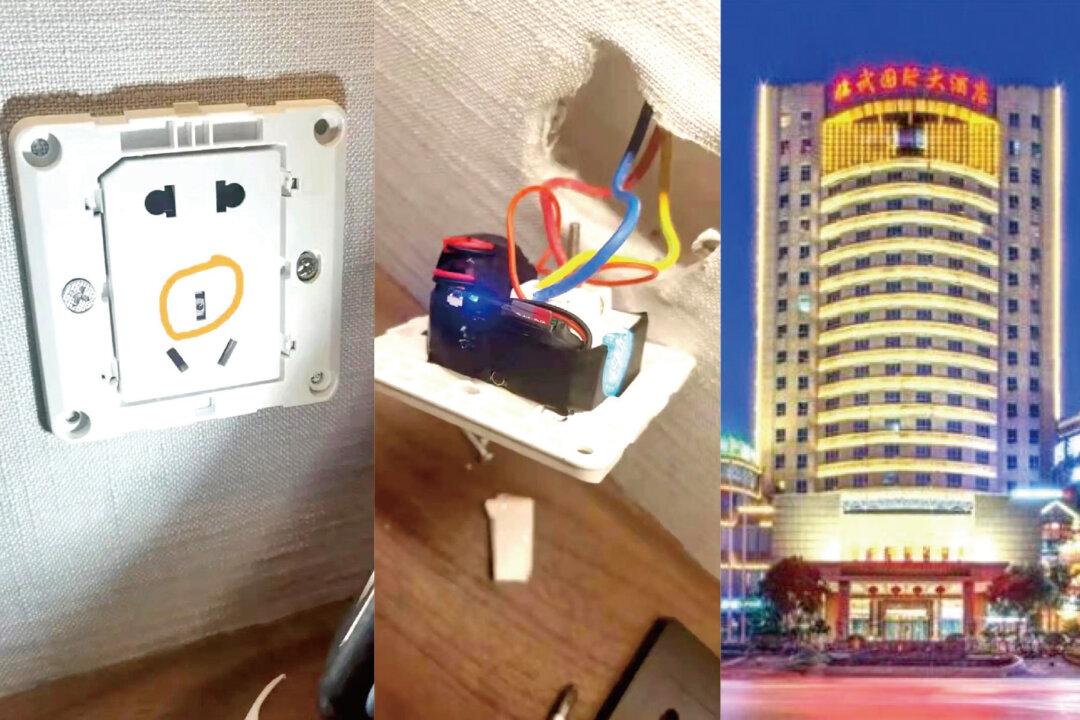A Chinese woman discovered miniature hidden cameras in two hotel rooms during a business trip in Hunan Province.
According to The Paper, a Chinese state-owned digital newspaper, on the night of Oct. 7, Ms. Tang checked in at Linwu International Hotel in Hunan’s Chenzhou City. She had recently heard on the news that women are secretly photographed in hotel rooms; so out of curiosity, she started looking for a camera when she entered room 1711.





